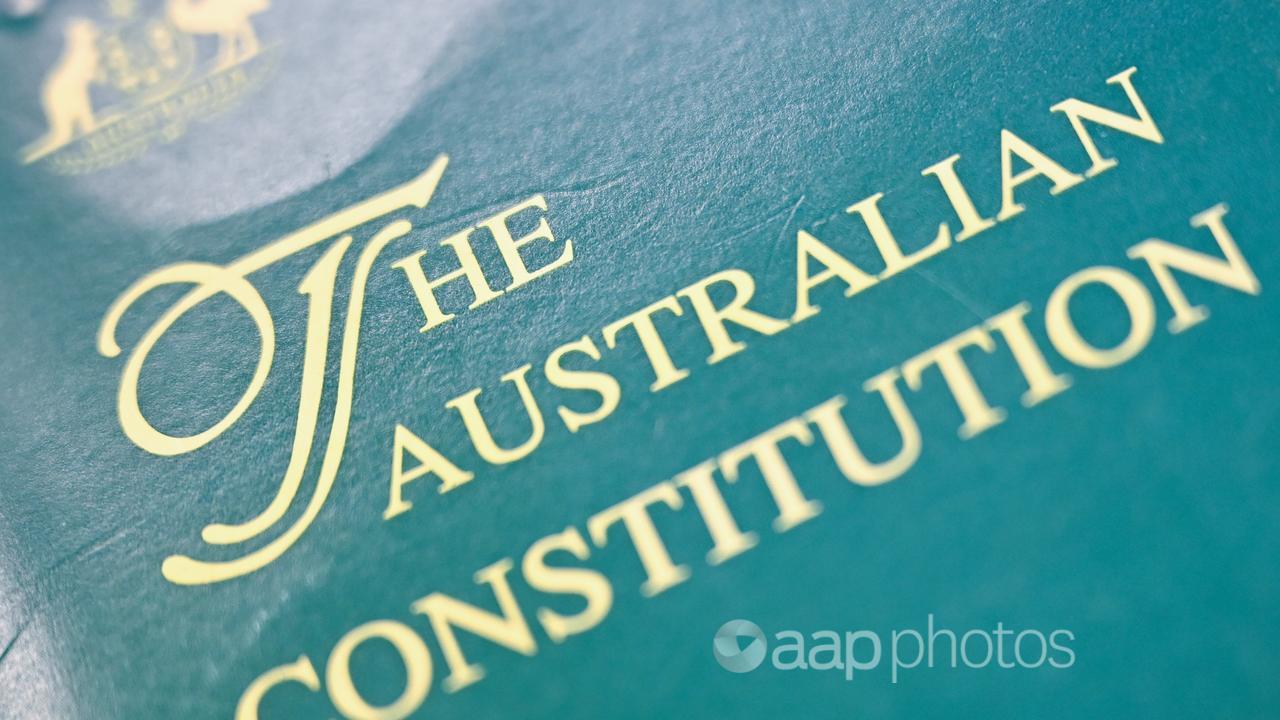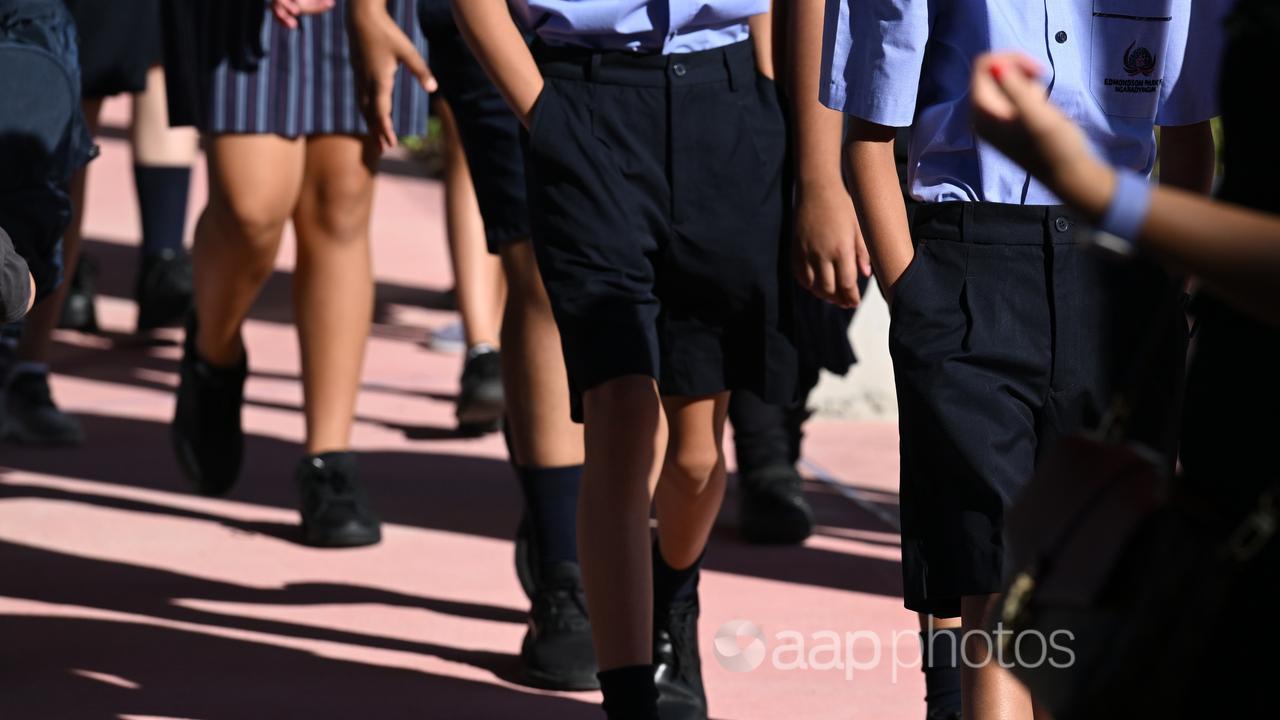It’s being claimed the Aboriginal and Torres Strait Islander Voice could never be voted out and could only be made stronger over time.
This is false. Experts told AAP FactCheck that if the Indigenous voice is enshrined in the Australian Constitution, it could be removed via another referendum.
Experts also said it is false to say the advisory body could only be made stronger over time. They told AAP FactCheck its powers are set by the proposed constitutional amendment and its “strength” will be largely determined by the usefulness of its representations and the government’s response.
Parliament would have the power to legislate the voice’s composition, functions, powers and procedures.
The claim is made in a Facebook video post (archived here) which features several other claims, including that the voice is a communist plot.

“Some of you might be asking, ‘If this is just an advisory board, why does it need to be put into the Australian Constitution?'” the narrator says (2-minute mark).
“Well, that’s because once it’s put into the constitution, it can’t be voted out, it’s there to stay forever, and it can only be made stronger over time.”
Australia will decide on October 14 whether to enshrine an Indigenous voice into the constitution.
Additions can only be to the constitution via a referendum. However, it is false to say they can never be “voted out”.
Cheryl Saunders AO, a laureate professor emeritus and expert in constitutional law at the University of Melbourne, explained it could be taken out by the same method that it would be put in – a referendum.
Associate Professor Murray Wesson, a constitutional law expert at the University of Western Australia, agreed, noting the constitution does provide an extra layer of security.
“If the Constitution is amended to establish an Indigenous Voice to Parliament and the Executive, it could only be removed by a further referendum under section 128 of the Constitution,” he told AAP FactCheck via email.
“In that sense, the Voice would not necessarily be permanent but given the infrequency with which referendums are held in Australia, the Voice would at the very least be a stable and enduring feature of the Constitution.”

In making the claim that it cannot be voted out, the narrator does not make explicitly clear if he is referring to the Indigenous voice as a whole or members of the proposed voice.
If he is referring to the latter, he is also wrong.
Professor Dan Meagher, constitutional law chair at Deakin University, said the constitutional amendment makes clear that parliament will have the power to make laws relating to the voice’s composition, functions, powers and procedures.
“That being so, it is perfectly possible for parliament to legislate to make the Voice an elected body and, so, capable of being voted out,” Prof Meagher told AAP FactCheck in an email.
Professor Luke Beck, a constitutional law expert at Monash University, agreed, stating that it will be “entirely up to parliament” as to how many members of the voice there are, how they are chosen and how long they will serve.
Prof Meagher said parliament’s authority over the voice’s design also renders the claim that it can only “get stronger” false.
“It is always up to Parliament,” Prof Meagher said.
“If Parliament wishes to limit the powers and functions of the Voice, it can clearly legislate to do so.”
Prof Saunders said the voice’s general parameters are set out in the constitutional amendment, notably that it can make representations on matters relating to Indigenous people.
“Those powers can’t be diminished (or, I would argue, increased) by legislation, but they can be structured in various ways,” Prof Saunders told AAP FactCheck in an email.
However, she said the voice in the constitution could be amended via another referendum to make it “stronger” or “weaker”.
But if the body is created following the October referendum, Prof Saunders said the voice’s “influence” will largely “depend on the quality and usefulness of its representations and on the government’s response, rather than on anything in legislation”.

Dr Wesson agreed, saying much of the strength of the voice, or the extent to which it is able to influence legislation and decision-making, would depend on how “persuasively it uses its power to make representations” and “how responsive future Parliaments and Executives are to those representations.”
“Future iterations of the Voice may be more or less effective in making representations, and future Parliaments and Executives may be more or less responsive to those representations,” he added.
The Verdict
The claim the Indigenous voice could not be voted out and could only be made stronger is false.
Experts told AAP FactCheck the proposed body could be removed from the constitution via another referendum.
They also said the voice could be made weaker via another referendum, or by parliament legislating its composition, functions, powers and procedures.
But experts said its strength would largely be determined by how responsive parliaments and governments are to its representations.
False – The claim is inaccurate.
AAP FactCheck is an accredited member of the International Fact-Checking Network. To keep up with our latest fact checks, follow us on Facebook, Twitter and Instagram.
All information, text and images included on the AAP Websites is for personal use only and may not be re-written, copied, re-sold or re-distributed, framed, linked, shared onto social media or otherwise used whether for compensation of any kind or not, unless you have the prior written permission of AAP. For more information, please refer to our standard terms and conditions.


















